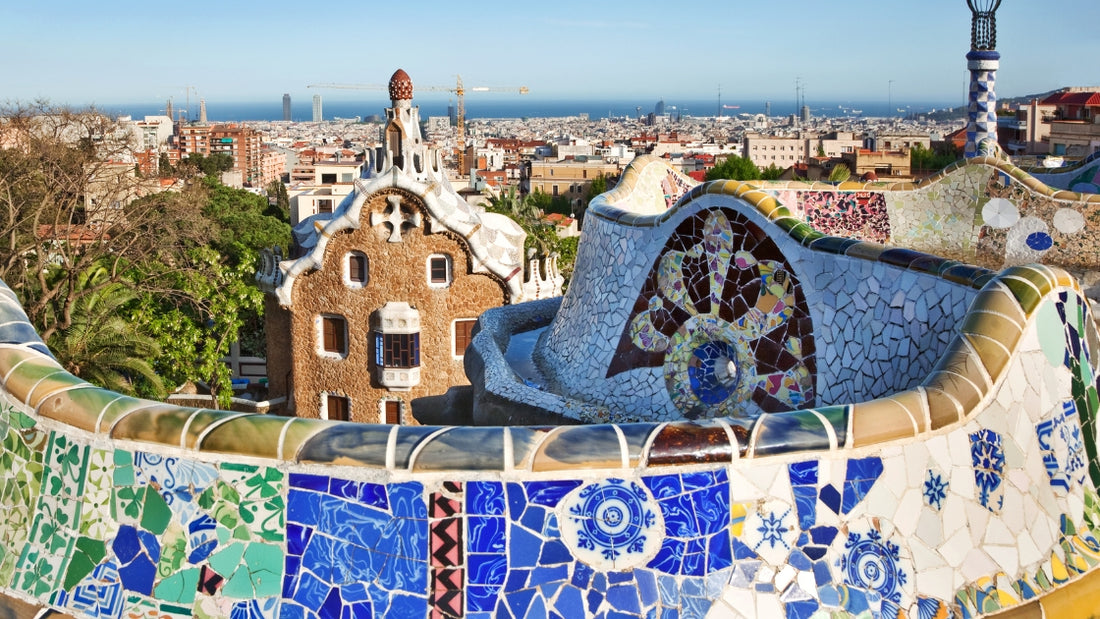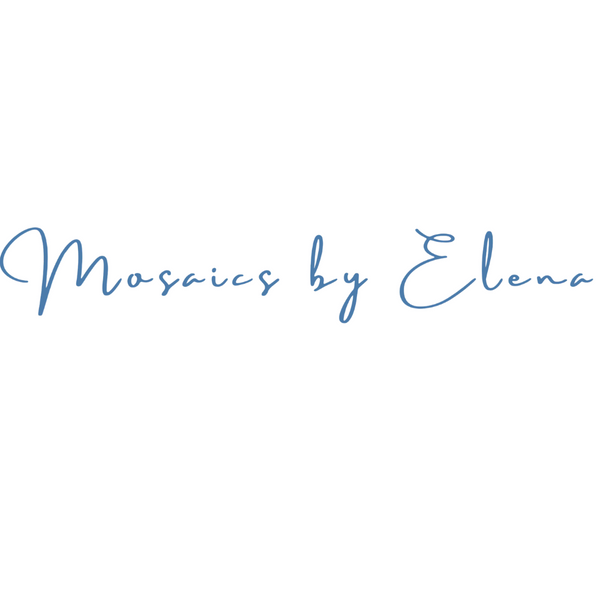
What is Picassiette Mosaic?
You may have heard this term before if you’ve dabbled in mosaic art. Picassiette mosaic ( or sometimes spelled pique-assiette) is a French term that translates literally to mean “plate picker” or “plate thief” and refers to the use of recycling broken plates, left-over ceramics, and glass to make a mosaic work of art. Oftentimes it goes beyond these materials and includes found objects like bottle caps, rusty nuts, bolts, and nails, stones, buttons, toy parts, jewelry bits and even cutlery to combine into an eccentric mosaic.
Parc Guell

This is my absolute preferred style of mosaic art and what got me started on this journey was visiting Parc Guell in Barcelona many years ago. This park is covered with beautiful, broken pieces of ceramics, glass and stone set on beautifully designed structures by Antoni Gaudi. Gaudi was a Spanish architect from the early 1900’s and Barcelona is home to many of his incredible works of art.
Another world-renown modern example of picassiette mosaics is found in Chartres, France. La Maison Picassiette is the incredible life’s work of artist Raymond Isidore. Born around the same time as Gaudi, Isidore began a self led, life-devoting project covering his house and surroundings with mosaic art. It is recounted that Raymond Isidore would pick and collect pieces from landfills and would have people donate items they found for this project. Without formal training in the arts, Isidore would cast them into cement, thus becoming a mosaic. To this day, La Maison Picassiette is a popular tourist destination.

More recently, many picassiette mosaics can be found worldwide, and in large public spaces. A few examples are:
- Niki de Saint Phalle’s Tarot Garden in Tuscany, Italy
- Isaiah Zagar’s walls in Philadelphia, USA
- Susan Gardener’s mosaic house in Brooklyn, New York.
So next time you break a plate, you might look at it differently. No longer useful for serving food.
Perhaps a beautiful picassiette mosaic!